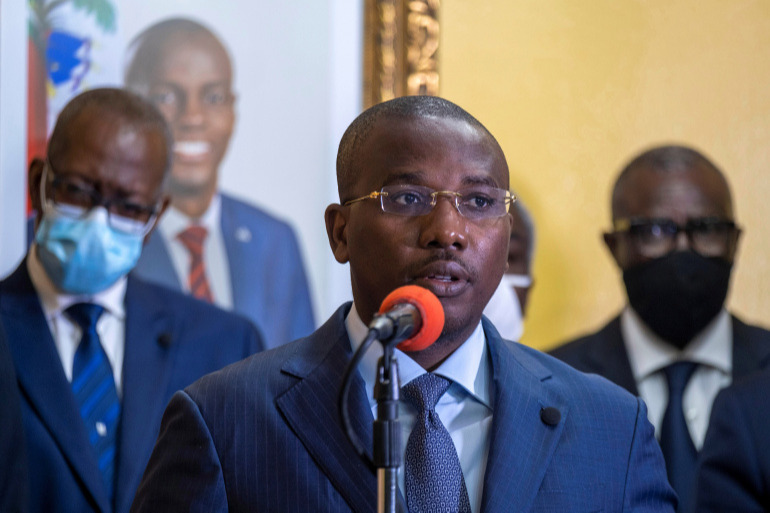
Claude Joseph, Haiti's interim prime minister, told the Washington Post he will step down "for the good of the nation" [File: Ricardo Arduengo/Reuters]
Port-au-Prince, July 19 (RHC)-- Haiti’s acting Prime Minister Claude Joseph, whose leadership of the nation has been disputed since the July 7 assassination of President Jovenel Moise, told the Washington Post newspaper Monday he will cede power.
Ariel Henry, who was appointed as prime minister by Moise two days before the assassination and who was recently recognised as the “designated prime minister” by the international community, will take over.
Joseph, who served as foreign minister under Moise and was serving as acting prime minister before Henry’s appointment, had to date refused to recognise Henry as the designated prime minister, arguing that Henry had not been sworn in at the time of Moise’s killing.
Joseph told the Washington Post that he and Henry had met privately over the past week, adding that he agreed to step down on Sunday “for the good of the nation.” “Everyone who knows me knows that I am not interested in this battle, or in any kind of power grab,” Joseph said.
“The president was a friend to me. I am just interested in seeing justice for him,” Joseph added.
It is not immediately clear how quickly Joseph would step down, however, foreign ministry senior official Israel Jacky Cantave said Joseph could hand power to Henry possibly as soon as Tuesday, the Reuters news agency reported.
“Negotiations are still in course,” Haiti Elections Minister Mathias Pierre said, according to the Associated Press, adding that Joseph would go back to being the minister of foreign affairs.
The change follows a statement Saturday from a key group of international diplomats that appeared to snub Joseph as it called for the creation of “a consensual and inclusive government.” “To this end, it strongly encourages the designated Prime Minister Ariel Henry to continue the mission entrusted to him to form such a government,” the statement from the Core Group said.
The Core Group is composed of ambassadors from Germany, Brazil, Canada, Spain, the US, France, the European Union and representatives from the United Nations and the Organization of American States.
The statement was issued hours after Moise’s wife, Martine, arrived in Haiti on board a private jet clad in black and wearing a bulletproof vest. She has not issued a statement or spoken publicly since her return to the country as the government prepares for her husband’s July 23 funeral in the northern city of Cap-Haitien.
Other events to honour the slain president are planned this week in the capital of Port-au-Prince ahead of the funeral.

